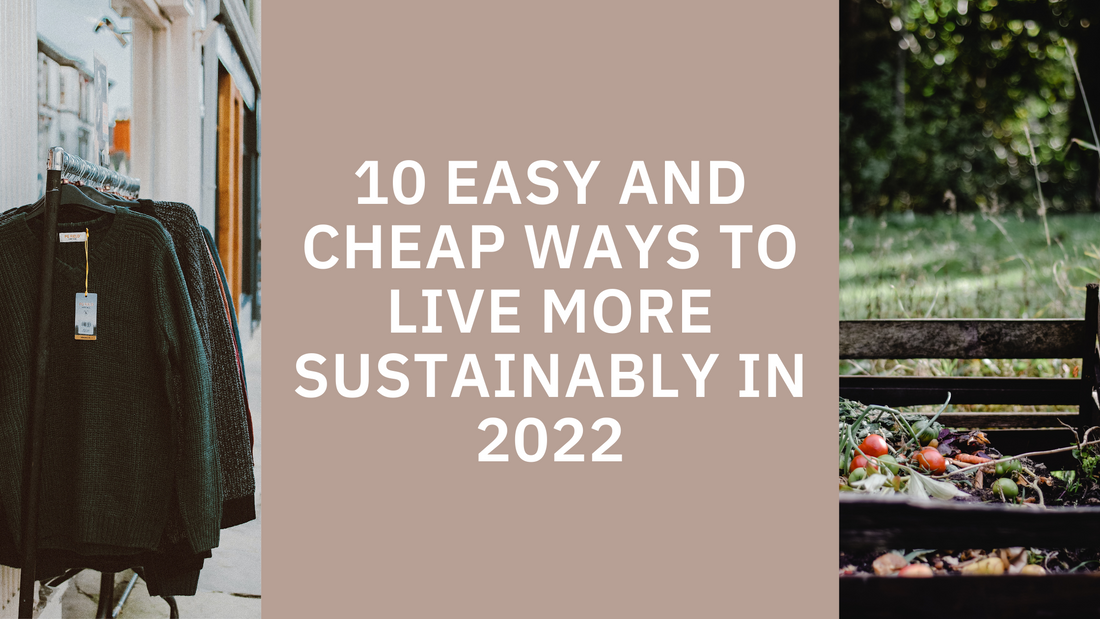We don’t always have the time or money to make drastic changes to our lifestyle, but we’re here to help you make the switch to a more sustainable life in easy and cost friendly ways.
Below, we outline the easiest and cheapest ways to live more sustainably in 2022, so you can still commit to helping the planet without having to go too far out of your way, or be out of pocket.
1. Boycott Products that Test on Animals, Endanger Wildlife or Harm the Environment
Sadly, to this day, there are still companies out there that test on animals, endanger wildlife by threatening habitats and use the planet as their dumping ground for product waste. Making the switch to companies that are ethical in their production and manufacturing of goods, as well as their waste disposal, is one of the easiest ways for you to live a more sustainable life in 2022.
2. Limit Food Waste
Greenhouse gas emissions are raised through the industrial production and transportation of food waste created by households. Easy ways to manage and limit your food waste include only shopping for groceries that you need when you need them, composting your food waste, and using up foods before their expiration dates. To use up fruits and vegetables before they turn bad, consider making batches of soup, smoothies or juices, veggie patties and other freezable meals that you can have on hand to defrost and cook up without the food waste, use stale bread for breadcrumbs or croutons. Start seeing the scraps as ingredients of their own!

3. Take Trains Instead of Planes (Where Possible!)
Travel through Australia and across most of Europe is largely possible with trains that connect states and countries. The carbon footprint left by the aviation industry is extreme, so if you can limit your personal air travel, then you’re doing your bit to reduce your footprint. Taking trains across the country can work out cheaper and it’s an extra little adventure that you get to go on, plus think of the sights you’ll see!
4. Don’t Waste Water
Keeping an eye on your water waste is going to save you money on your water bill each month, and help the environment in the process. Use your dishwasher over hand washing dishes, wash only full loads of washing and limit the number of loads you do where possible, use reusable water bottles instead of buying a plastic bottle of water while you’re out and try to take shorter showers (we know this can be hard in Winter when it’s cold, but you’ll get used to it!).

5. Drive Less
Before jumping in the car, ask yourself if you can walk there, ride your bike or catch the bus / train. Plan your trip in advance, if you’re walking to get your groceries, don’t forget to pack your reusable bags that are easy to carry. If you’re catching the bus to a friend's house, look up the timetable and take a bottle of water and some snacks in your bag. Catching public transport across most major cities in Australia is easy and often costs a lot less than a full day of parking, and walking more obviously has health benefits too!
6. Unplug More
If you’re leaving home for a few days, or even just for the day, and you have appliances at home that won’t be used, unplug them! Things like TV’s, chargers, microwaves, air fryers and so on, don’t need to be plugged in if you’re not using them. Unplugging them will save on your electricity bill while you do your bit for the environment.
7. Shop Less
Ok, if you want to physically go shopping because it’s fun and something to do, go for it, but be smart about your purchases and start buying less. Do you really need three winter coats when you wear the same one most of the time? Do you really need a new outfit for that upcoming event when you have plenty of options at home? If the answer is yes, then head to a second hand store and see what kinds of goodies you can find there. Alternatively, see what you can do with your existing pieces, take pieces that are too big or too long to a tailor, do a clothes swap with someone who wears the same size, add a belt or wear an old dress in a different way.
8. Go Second Hand
While we’re at it, why stop at clothes when it comes to shopping secondhand! You can find some absolute treasures when you take the time to dig around. Furnish your house with second hand furniture and appliances, shop around for a second hand camera or electronic device, stock your bookshelf full of secondhand books that have lived a whole other life before coming to you. Nowadays, the majority of secondhand stores only sell items that are in working and otherwise good condition as well, so you’re bound to score some awesome finds. This will also save you money!

9. Drop the Disposables
Disposable bathroom products are no better for the environment than single use plastics. Stop purchasing makeup wipes, cotton buds and cotton pads and replace them with reusable cloths and bamboo cotton buds. You could even reuse an old towel or shirt to remove your makeup, simply cut it up into strips or squares and use it over and over.
10. Buy in Bulk Where Possible
Avoid buying mini versions of things that come in plastic or wasteful packaging and try to buy items in bulk where possible. Individual products are mostly sold in packaged plastic, most of which is unnecessary, so buying in bulk is an easy way to help save on packaging waste. Items like grains, spices, toilet paper and cleaning products are readily available in bulk and are usually packaged in cardboard or paper.

